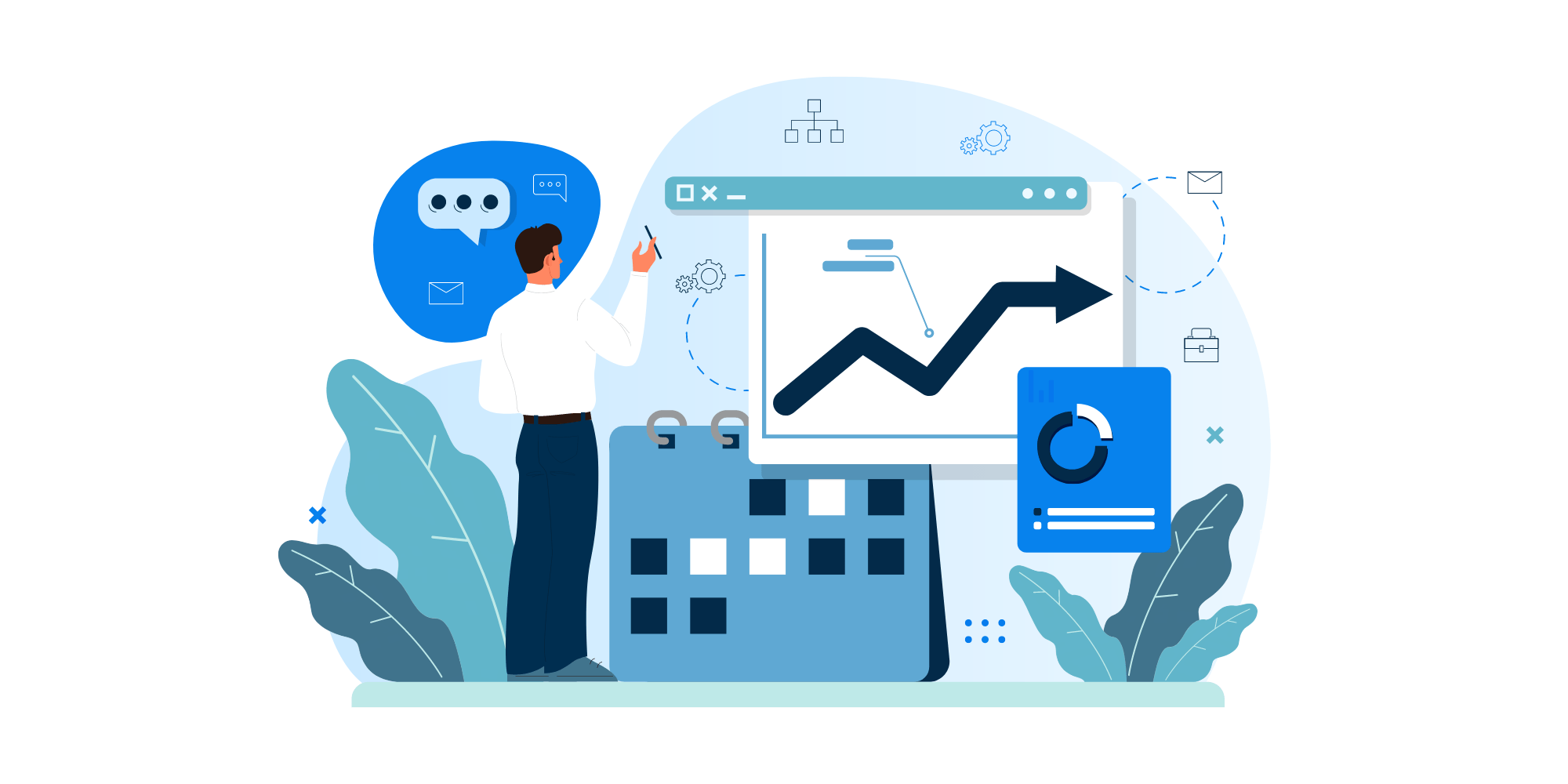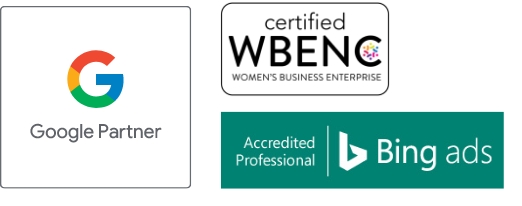
How AI and Data Analytics Drive Better Engagement for Life Sciences Marketers
Pharmaceutical and biotech companies continuously seek ways to connect with diverse audiences. Whether reaching prospective patients, engaging healthcare professionals, or building relationships with research and industry leaders, the mission is clear: Inspire trust, spark interest, and foster long-term connections.
Leveraging data analytics and artificial intelligence (AI) allows you to take this mission to the next level, offering personalized, impactful marketing experiences that drive results. In just a few clicks, you can access valuable insights, create personalized marketing experiences, and improve outreach to physicians, healthcare providers, and industry thought leaders.
How can pharmaceutical and biotech industries harness these technologies for more effective engagement and marketing outcomes? Let’s explore.
GET A CLOSER LOOK AT PATTERNS, TRENDS, AND INSIGHTS
Data analytics can be a valuable tool for life sciences marketers who seek to understand the complexities of market dynamics and identify emerging trends. Deeper insights into audience behaviors; patterns in patient, physician, and consumer preferences; treatment outcomes; competitor activities; and market segmentation enable you to make more informed, data-driven decisions. Analytics can also pinpoint shifts in market demand or untapped opportunities, helping you craft campaigns that are more timely and effective.
- Audience Segmentation: Advanced analytics offer insights into market dynamics, so you can more effectively segment your target audiences and adjust your campaigns for better performance. When you can easily analyze patient, provider, and other consumers’ demographics, behavior, and preferences, you can create highly targeted campaigns. If you’re launching a new drug, therapy, or technology, using available data to segment audiences based on variables like medical specialty or geographic location can be key to your campaign’s success.
- Predictive Analytics: These can help you identify potential patients who would benefit from medications and clinical trials, forecast potential sales, and offer insights into potential market size and growth. Imagine gaining insight through fast, automated analyses of historical and current data on disease prevalence, patient demographics, and competitor performance.
- Campaign Optimization: Data analytics also allow you to track your campaign’s performance, so you can make informed adjustments to your strategies in real time, leveraging insights like click-through and conversion rates. Ultimately, you’ll have easily generated reports of how patients, providers, or consumers interact with your content to help you refine your marketing approach even further.
With these insights, life sciences marketers can optimize resources, enhance targeting, and drive better audience engagement.
PERSONALIZE CONSUMER TOUCHPOINTS
Working with AI and machine learning, you can deliver personalized consumer experiences. AI can analyze vast amounts of data from various sources to predict your audiences’ preferences and needs.
- Targeted Content Delivery: Machine learning algorithms and AI-driven platforms help companies create highly personalized experiences for patients, healthcare providers, manufacturing companies, or other target audiences. For example, AI-powered tools can analyze provider and patient behaviors to ensure you’re meeting their needs, whether it be through clinical guidelines, drug product information, or condition-specific content.
- AI Assistance: Incorporating AI-powered chatbots and virtual assistants into your website means you can provide answers to consumer questions, information about your products, and suggestions for additional educational materials – all without requiring support staff to be online. AI chatbots and assistants gather customer data through these personalized interactions, which companies can analyze to tailor marketing strategies to those audiences’ preferences.
- Automated Engagement: AI-automated marketing systems can even send personalized messages based on a patient’s stage in their treatment journey or a provider’s current research into new treatments for their patients. A biotech company’s AI-automated system might dispatch tailored emails to physicians when a new clinical guideline is published. A pharma brand’s system might send personalized messages about minimizing side effects to patients using a particular drug.
Personalization enhances engagement, builds trust, and improves the effectiveness of marketing campaigns.
BUILD RELATIONSHIPS AND SHAPE BEHAVIORS
Life sciences marketers can use data from various touchpoints to map the entire patient, provider, or consumer journey, encompassing stages such as awareness, diagnosis, research, prescription, purchase, and utilization. This map helps marketers identify gaps in education or communication, enabling them to deliver the right messages at the right time. The goal is to build trust and nurture long-term relationships at every stage.
- Supporting Patient Adherence: By analyzing data-driven insights that show patterns in prescription refills, patient behavior, and potential obstacles to adherence, marketing teams can design interventions that encourage patients to stay on their treatment regimens so they can achieve the best outcomes. For example, working with providers, you could create personalized reminders and facilitate connections with care teams, offering targeted support.
- Engaging Thought Leaders: Life sciences marketers can use data and AI to analyze publications, conference participation, and social media, helping to garner relevant information and build relationships with opinion leaders who can advocate for their products. Data-driven insights can allow marketers to identify effective channels for engaging with these audiences and track how these leaders interact with digital content to shape effective strategies.
- Understanding Prescription and Treatment Protocols: AI can help pharmaceutical marketers understand the drivers behind physician prescribing behaviors by analyzing physician prescription patterns and reviewing trends in treatment protocols. This insight allows for the development of strategies that encourage adopting new therapies or alternative treatments.
With data-driven insights across the patient, provider, and consumer journey, you can create strategies that foster stronger relationships, improve patient outcomes, and drive the adoption of your innovative products, technologies, and therapies.
UNLOCK OPPORTUNITIES WHILE MAINTAINING SECURITY, COMPLIANCE, AND ETHICS
AI can play another critical role in life sciences marketing: facilitating regulatory compliance by automating compliance processes, detecting potential risks, and ensuring data integrity. It’s clear that data analytics and AI will be at the core of enhancing your company’s marketing efforts. However, as always, pharmaceutical and biotech companies need to keep data security, privacy, regulatory compliance, and ethics top of mind.
- Securing Data: Data breaches happen, so security is paramount, especially when handling sensitive health data. That means prioritizing secure storage, encryption, and access controls.
- Ensuring Compliance: Adhering to HIPAA (Health Insurance Portability and Accountability Act) regulations and GDPR (General Data Protection Regulation) means ensuring that all patient data is anonymized, stored securely, and only used for authorized purposes.
- Maintaining Transparency and Ethical Use: It’s vital to remain transparent with patients about how their data is being used. Additionally, make sure that your use of AI is ethical and responsible. Your audiences will trust you more if you disclose how AI is applied in your marketing campaigns, what data is used to train your AI models, and information about the decision-making process behind any AI-generated content.
Want to learn more about harnessing the power of data in your life sciences marketing strategy? LIGHTSTREAM is here to guide you. Contact us today to learn how we can help you responsibly reap the benefits of AI and data analytics.
